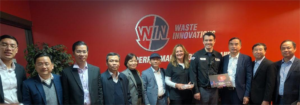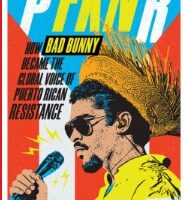
In its efforts to support Vietnam’s development, the United Nations arranged for a delegation from Da Nang City to tour Wheelabrator Westchester WIN Waste Innovations at Charles Point in Peekskill in mid-November 2024.
Although the native language of the delegation differs from that of the tour host, a commonality exists in the need for efficient and safe disposal of increasing amounts of municipal solid waste amid rapid community growth. Waste-to-Energy is the U.S. Environmental Protection Agency’s (EPA) preferred method of end disposal for municipal solid waste.
Whitney Waite, Public Relations Specialist for WIN Waste Innovations, welcomed the group, which included Delegation Head Le Trung Chinh, who is Deputy Secretary of the Da Nang Party Committee and Chairman of the Da Nang People’s Committee, as well as Da Nang City’s directors of finance, science and technology, urban affairs and infrastructure.
Rapid growth in Vietnam has resulted in increased waste to landfills. Decomposing waste in landfills not only emits methane gases, but can lead to land, air, and underground water pollution, while negatively impacting residential communities by exposing them to foul odors. Landfilling is expensive, outdated, and in Da Nang City, landfills have reached, or are near, capacity. That prompted the delegation to explore establishing sustainable disposal of waste.
The visit, coordinated through the Science and Technology Representative Office in New York Permanent Mission of Vietnam to the United Nations, included a presentation in English by David Schepperly, Plant Manager of Westchester Waste-to Energy, which was simultaneously translated into Vietnamese by one of the visiting delegates.
Schepperly discussed the environmental benefits of Waste-to-Energy and showcased the facility’s state-of-the-art emissions controls and safety protocol before leading the delegation on a tour of the facility and control room, where they saw the process at work. Schepperly stressed the importance of ongoing upgrades to plant technologies to ensure maximum recovery of resources and maximum renewable energy output, while maintaining safety protocols. The Westchester plant’s emissions consistently remain below EPA and NYDEC permit levels, while powering the equivalent of 30,000 homes with renewable electricity annually. The delegation had questions regarding the yearly volume and cost of waste processed, the amount of electricity used in processing, how and where the sanitized ash is disposed, and the square footage of the facility.
Through their translator, the delegation said, “Thank you, WIN Waste Innovations, for the opportunity to tour the facility. We see many advantages in the plant’s technologies which are most advanced, in comparison to Da Nang City’s current use of landfills for the disposal of waste.”
Mary Urban, Senior Director of Communications for Win Waste Innovations, said in a press release issued after the delegation’s visit, “Modern waste-to-energy facilities like ours recover energy from waste and recycle thousands of tons of metals, preserving natural resources. For every one ton of waste we process at the WIN facility, we are preventing up to 1.7 tons of greenhouse gases from entering the atmosphere. We are honored to host Da Nang’s leaders, and we look forward to following their progress toward helping make Vietnam’s economy more vibrant, circular and sustainable.”






